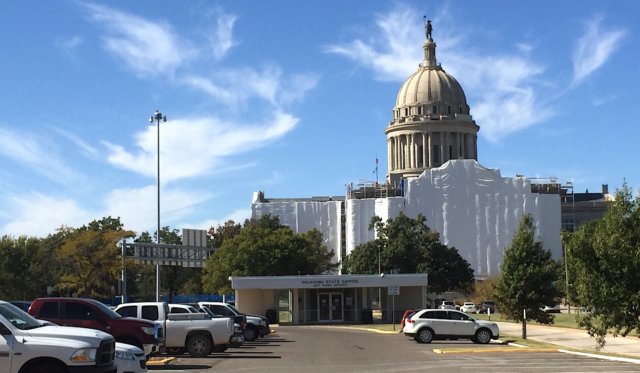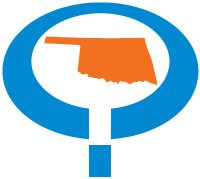
(Editor’s note: This story was authored by Trevor Brown of Oklahoma Watch and appears here in accordance with the non-profit journalism organization’s republishing terms.)
Former state Rep. Dan Kirby (R-Tulsa) was left with a sizable campaign nest egg after his fourth re-election in November 2016.
But Kirby wouldn’t have the chance to spend the $42,416 in leftover campaign funds for another run. He resigned just months after his election following an investigation into sexual-harassment allegations against him.
But Kirby still found reason to tap his campaign funds.
Campaign records show that Kirby paid $14,851 to Aston Mathis Law, the firm that represented him during a House investigation, and $2,000 to Fellers Snider Law. He reported the first one as “office holder legal fees” and the second as “attorney fee incurred while actively serving in office.”
Kirby’s expenses are among the $462,315 in so-called “officeholder expenses” — a type of campaign expense — that sitting legislators reported during the first nine months of 2017. The period was during a non-election year when campaign activity was more likely to be dormant.
Lawmakers also claimed “officeholder expenses” when they bought pricey meals for themselves and their colleagues, traveled to the presidential inauguration, paid membership dues to organizations and bought tickets to banquets and galas, an Oklahoma Watch review of campaign filings reveals.
Sen. Bill Brown (R-Broken Arrow) for example, spent $520 on Oklahoma State University football tickets. Rep. George Young (D-OKC) expensed travel and lodging to a New Orleans festival headlined by top musical acts. Rep. Mark McBride (R-Moore) picked up the tab for 11 meals at two upscale Oklahoma City restaurants.
Legislators devoted most of their officeholder expenses to things tied directly to their duties, such as mileage to and from legislative events not eligible for state reimbursement, trips to out-of-state legislative conferences, office supplies and constituent-outreach events.
But some expenses appeared unrelated or tangential to campaigns. The details of that spending shed light on a little-known, official perk that most campaign donors are likely unaware of when they write checks or make online donations to candidates.
Most of the filings appear to be legal. State ethics rules ban personal use of campaign funds, but the prohibition isn’t as sweeping as it implies. Lawmakers are allowed to spend campaign cash on “ordinary and necessary expenses” — meaning almost anything connected to their duties as elected officials — that wouldn’t exist if they weren’t in office.
The records from January to September, the latest available, show lawmakers’ interpretation of officeholder expenses varies widely. Dozens claimed none. Others claimed tens of thousands of dollars.
Denise Roth Barber, managing director of the non-partisan National Institute on Money in State Politics, questions the ethics of officeholder spending.
“Just because they can do something doesn’t mean they should,” Barber said. “They need to remember they are basically using other people’s money and respect the intent of the donors who put them in office.”
Barber said the excessive use of such expenses contributes to lawmakers’ reliance on campaign funds from special-interest groups even if they have a safe seat or are unopposed.
“The donors understand that whether (the lawmaker) needs the money or not, that they are essentially buying access to the lawmakers.”
Campaign-funded travel
Travel in and out of state made up about one-third of lawmakers’ officeholder expenses this year.
The House and Senate reimburse lawmakers for their mileage to and from home during session. Legislative leaders can approve reimbursement for official meetings outside of session. Lawmakers who live at least 50 miles from the Capitol also can receive a $153 per diem.
But travel for constituent events, informal legislative meetings and most conferences must be paid out of their personal or campaign checkbooks.
What qualifies as acceptable campaign travel can be debatable.
Attending an out-of-state conference sponsored by the National Conference of State Legislatures, a common occurrence for lawmakers, easily fits the bill.
RELATED
List of lawmaker gifts received
by Oklahoma Watch
Less clear are trips like the one costing $2,387 that Young took in June to New Orleans to attend what he reported as the “Essence Event.”
Young spent the most among lawmakers on listed officeholder expenses, at $23,270, between January and September.
The dates of his June trip coincide with the Essence Festival, an annual three-day event for “music, entertainment, empowerment and culture,” according to its website.
The event’s 2017 lineup included Diana Ross, John Legend, Mary J. Blige and Chance the Rapper, in addition to political speakers such as U.S. Rep. Maxine Waters (D-California) and the Rev. Al Sharpton.
Young’s name wasn’t on the agenda, and it is unclear which events he attended. He did not respond to calls and emails seeking comment about why this qualified as an officeholder expense.
Young’s son, George Potts Young, and his musical group, George Potts Young and Church Friends, were listed as a performer during the festival.
Other legislators also used campaign funds for trips that appeared loosely connected to their official duties.
Sen. Nathan Dahm (R-Broken Arrow) and Reps. Casey Murdock (R-Felt) and John Paul Jordan (R-Yukon) used campaign funds to travel to President Donald Trump’s presidential inauguration in January. None responded to requests for comment.
Sen. Stephanie Bice (R-OKC) said there is an appropriate time to use campaign funds while in office. She questioned whether her donors would be comfortable with spending campaign money to attend the inauguration unless she also were meeting with federal officials in Washington or doing something else related to her legislative role.
“I will say for myself that I would never use campaign funds to go on that particular trip,” she said.
Bice, however, did run up a $1,050 officeholder tab at Ted’s Café Escondido in Oklahoma City in April for a Senate Budget Caucus event, records show. She said the expense was justified because lawmakers discussed policy there.
Since last year, the Oklahoma Ethics Commission’s three compliance officers have combed through expense filings of every candidate for state office.
Executive director Ashley Kemp said her staff looks for obvious inappropriate spending. If something seems improper, the commission contacts the official or candidate and asks them to reimburse the campaign. The commission also can investigate after doing an internal review or receiving a complaint from someone with “personal knowledge” of a questionable expense.
For repeat or egregious offenders, the commission can refer them for prosecution or come to a settlement agreement.
But Kemp said deciding whether an expense violates the rules for officeholder spending can be up for interpretation. It depends on the office and the officeholder’s responsibilities.
Tickets and memberships
Lawmakers’ campaign funds also bought them tickets to events, ranging from college football games to the Tinker Air Force Base’s 75th Anniversary Ball.
A rule enacted in 2015 generally bans spending campaign funds on tickets for athletic events, concerts and other forms of personal entertainment unless it is part of a campaign event or is tied to the responsibilities of their office.
Before this year, many lawmakers bought tickets to football games or community events and donated them to a nonprofit. But a rule that took effect in May requires officials to specify in their filings if the tickets, or anything else of value, is donated.
Campaign filings show a pair of lawmakers still purchased college football tickets this year.
Rep. Mike Sanders (R-Kingfisher) bought $1,230 worth of University of Oklahoma tickets shortly after the new rule took effect. Sanders said he intended to donate them to charities or schools in his district, but he reimbursed his campaign with personal funds after he found out about the change.
For Bill Brown’s $520 in OSU tickets, filings don’t show whether he has similarly reimbursed the expense. Brown did not return several calls and emails seeking comment on whether he reimbursed the cost, donated the tickets or used them himself.
The rules for Brown are less strict, however. He formed his campaign committee in 2014, when he last ran for office, and thus is exempt from the 2015 rule that is less ambiguous about entertainment tickets.
For other types of tickets — galas, banquets and fundraisers — officeholder spending is allowed if attendance is tied to the responsibilities of a legislator’s office.
Several lawmakers used campaign funds for membership dues.
Most dues were to lawmakers’ local chambers of commerce or party groups, such as the Senate Republican Caucus. But one lawmaker, Sen. Paul Scott (R-Duncan) paid $300 for a National Rifle Association membership. Scott, elected in 2016, paid for the membership on June 12, 2017. His campaign website states that he was an NRA member before he was elected.
‘We are going to be talking about something’
Sitting lawmakers elected in 2016 or already serving spent an average of about $3,000 each in officeholder expenses during the first nine months of this year. But the spending varied widely.
Thirteen lawmakers spent more than $10,000, according to their self-reported amounts. More than 60 spent $500 or less.
McBride, an assistant majority floor leader, was among those who spent the most, with 98 separate expenses totaling $12,041.
McBride’s spending included paying a $600 bill from Premier Catering to host a freshman legislator dinner at the start of the spring session and a $459 bill through the same company for dinner for elected officials at the session’s end. He spent an additional $1,470 on 11 visits to the Mahogany Prime Steakhouse and the Broadway Bar for groups of lawmakers.
“If I’m going to lunch or dinner, we are going to be talking about something,” he said.
McBride added his other officeholder expenses were a way to reach constituents. Those included about $500 in bills at coffee shops for his “Coffee on Me” events in which he invites the public to come and discuss issues.
“I think people support me because I engage my district,” he said. “And if donors don’t like how I’m spending the money, I think they would just quit giving.”
Rep. Cory Williams (D-Stillwater) was among other lawmakers who reported some high lunch or dinner bills.
Among them were $265 spent on Democratic lawmakers at Vast, an upscale restaurant near the top of the Devon Tower, in July. The five-term lawmaker also spent $591 for himself and several other lawmakers at Scoma’s Sausalito, located near San Francisco’s Golden Gate Bridge, while attending a National Conference of State Legislatures conference.
Williams said he doesn’t think his donors would object to the expenses.
“The vast majority of funds I get are from (political action committees),” he said. “And this is the same type of things that their lobbyists spend on us, so I think they’d be fine with it.”
Sen. Jason Smalley (R-Stroud) said that he and many other lawmakers are not independently wealthy. He said his donors would understand him spending $650 for lunch for the Senate Republican Caucus at the Drum Room in March because he was asked to pay.
“If I had not been a senator, then I would have not been asked.”
Other lawmakers said even though they can legally spend campaign cash on meals or other expenses, it doesn’t mean they should.
Rep. Jason Murphey (R-Guthrie) who doesn’t accept contributions from political action committees, was among the lowest spenders. He reported eight “un-itemized” expenses totaling $274.
Murphey said he has seen “some abuses” of campaign funds during his decade in the Legislature, but the Ethics Commission has tightened the rules. Still, the temptation remains.
“I think the average grassroots donors naturally assume that their money will be tied to the campaign or direct officeholder expenses,” he said. “But I don’t think the special interests care, and this just allows them to buy more influence.”






















